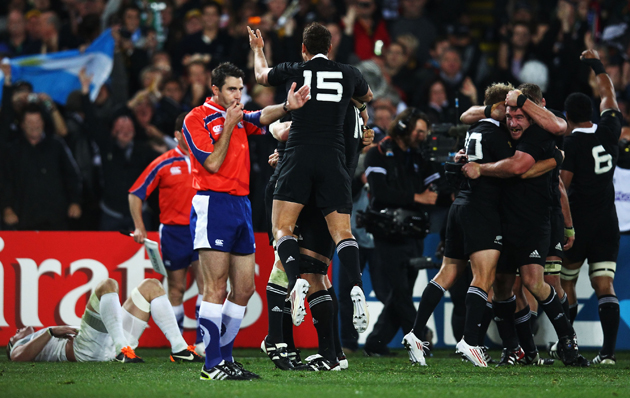IRB Match Official Manager Joel Jutge explains how he plans to achieve refereeing consistency at next year's World Cup in England
RUGBY WORLD interviewed IRB Match Official Manager Joel Jutge, the former Test referee, about his role and his plans for the 2015 World Cup…
RW: What will your role involve as you prepare for RWC 2015?
JJ: Most of what we are doing at the moment is geared towards RWC 2015. We want to ensure that we have the best possible panel of match officials ready for the next World Cup. To achieve this requires a combination of good training, performance review (particularly self-review by referees themselves), consistency in the application of law at international level and, of course, astute selection.
My role is to help bring all those things together while working with the elite referees, the various referee managers and the IRB Match Official Selection Committee, which is led by John Jeffrey. It is also important for me to communicate with international team coaches to take their views on board and inform them of any changes in focus.
RW: What are your aims for refereeing at RWC 2015?
JJ: Ultimately, we want the match officials to be worthy of the world’s pinnacle rugby tournament through their strong, empathetic and consistent refereeing. Just like all the teams, we know that the hard work being done today will hopefully prepare the referees to arrive at RWC 2015 in a calm, confident and determined state of mind ready to do their best. As always, we want the actions of the players to be the focus.

Video replay: this Owen Farrell try in the Premiership final was later ruled out after a TMO intervention
RW: Are you involved in making changes to the TMO’s remit eg, the intervention on the Owen Farrell try in the Premiership final?
JJ: Well, IRB Rugby Committee is involved, indirectly. Ultimately, domestic leagues such as Premiership Rugby implement their own TMO protocols but of course it’s within a framework of existing IRB laws and guidelines. Any change in laws or guidelines is made with complete consultation of the Law Review Group and the Rugby Committee.
My role is to provide the perspective of the match officials to the debate but Rugby Committee has to consider a number of other perspectives as well before recommending a particular set of TMO protocols. We maintain a good working relationship with our unions and their domestic leagues. For example, Premiership Rugby has been to the fore in trialling TMO protocols and various other initiatives over the years.
For more from this interview with Jutge, see the September 2014 issue of Rugby World – on sale on Tuesday 5 August.





